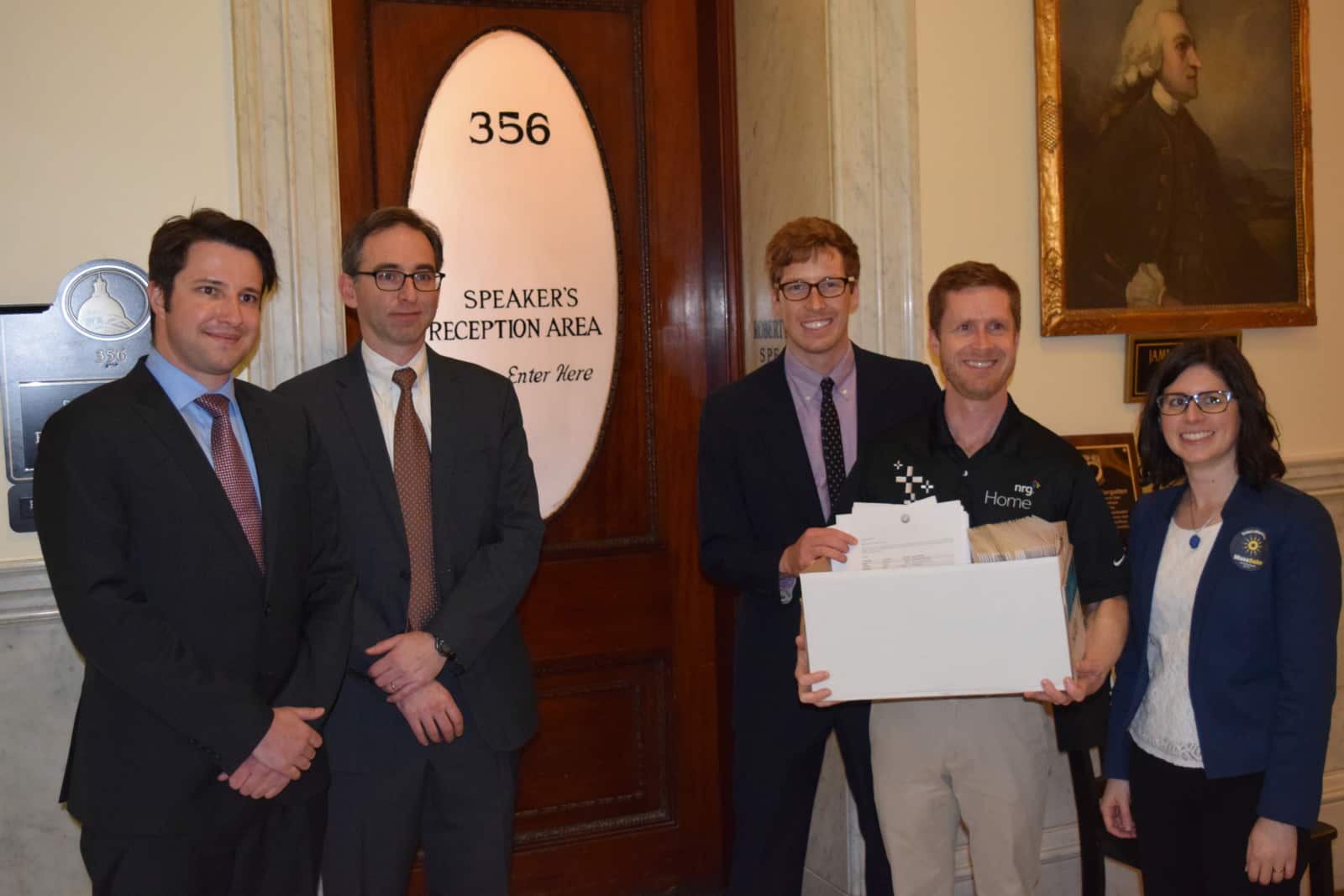Industry Speaks Up For Solar In Massachusetts

The solar industry went to the Massachusetts State House in Boston yesterday to deliver more than 5,000 petitions and letters to Democratic House Speaker Bob DeLeo, demanding lawmakers to act swiftly and decisively on keeping solar working in the state.
The solar industry went to the Massachusetts State House in Boston yesterday to deliver more than 5,000 petitions and letters to Democratic House Speaker Bob DeLeo, demanding lawmakers to act swiftly and decisively on keeping solar working in the state.
Solar energy in Massachusetts is at a tipping point. More than 500 projects are on hold because of a cap on net energy metering. State policymakers should lift the cap and allow solar to flourish, rather than allowing the industry to go dormant, and here’s why.
Thanks to strong and successful policies, we anticipate a doubling of jobs, a quadrupling of capacity and $150 billion in new investment from solar energy across the country over the next five years.
The growth spurt in solar has already become a major economic driver for the Bay State, bringing more than $800 million in investment in 2015 alone. In fact, the New England state ranks fourth in the nation in total installed solar capacity, clocking in at 945 megawatts (MW)— enough solar energy to power more than 150,000 homes.
Zaid Ashai, a Massachusetts solar CEO, explained why hundreds of millions of dollars in annual investment are at risk in CommonWealth Magazine.
Together, the stalled projects “represent nearly 250 MW of generating capacity, well over half a billion dollars in deferred investment into local renewable energy sources, tens of millions of dollars in annual electricity savings for Massachusetts ratepayers, thousands of local jobs, and hundreds of metric tons of potential carbon emissions reductions for every hour the sun is shining,” Ashai explains.
Solar power is not a zero sum game: Net metering is also not an incentive https://t.co/cjxRnv68vn
— CW Magazine (@CommonWealthMag) March 29, 2016
Massachusetts can continue leading the way, but only if Beacon Hill expands the state’s strongest and most successful solar programs: net metering and solar renewable energy certificates (SRECs).
SEIA has been actively engaged in negotiations over lifting the current net metering caps. Separately, Gov. Baker needs to create a successor program to the current SREC program, which has already received applications in excess of the 1,600 MW of solar goal.

